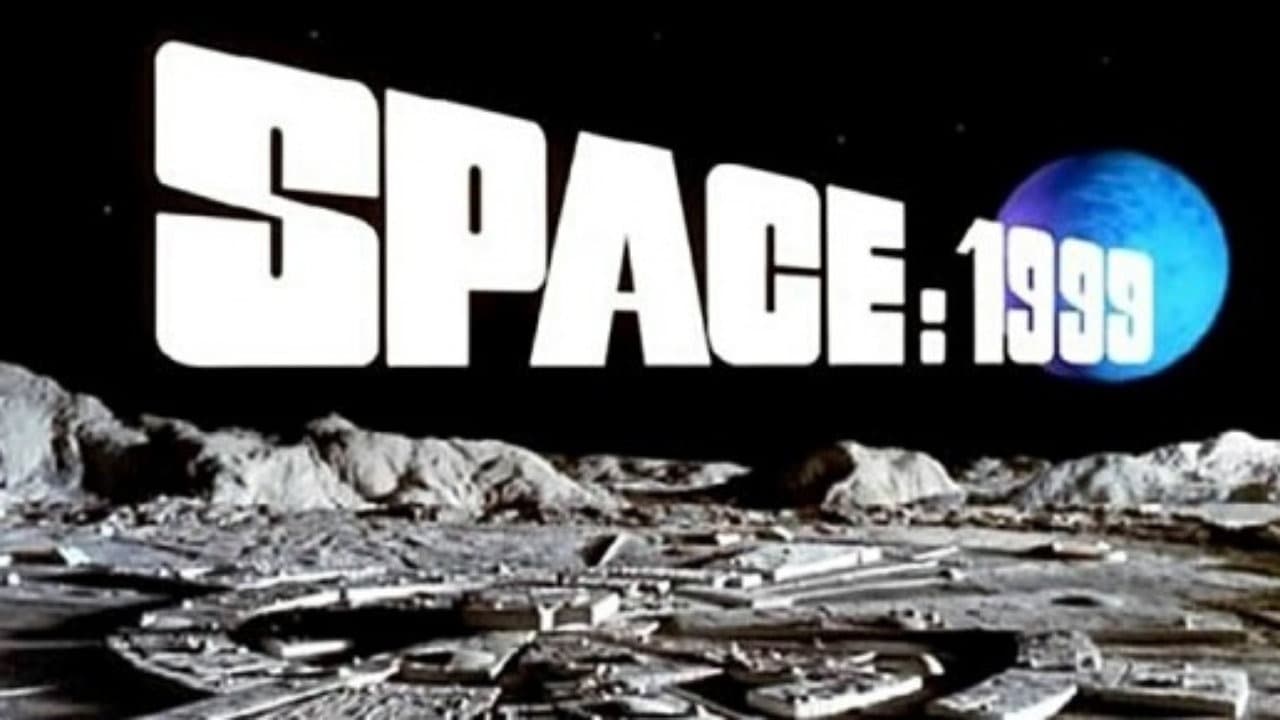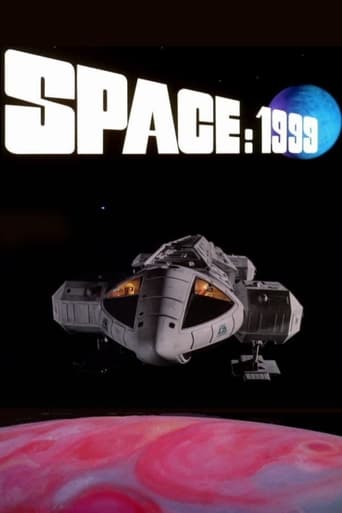

Gripping story with well-crafted characters
... View Moregood back-story, and good acting
... View MoreThis movie feels like it was made purely to piss off people who want good shows
... View MoreOne of the best movies of the year! Incredible from the beginning to the end.
... View MoreI cannot recall a show that had such huge differences between its few seasons. Season one is the "serious" one. The "main mission" set is huge, and Moonbase Alpha really does seem realistic. The special effects are superb, some of the best pre-CGI work ever seen. The guest cast list is fantastic, with many notables who would go on to greater fame.The show's main premise is of course utterly ridiculous; the moon is propelled out of orbit and amazingly arrives in a new solar system virtually every week. However, within the "travelling moon" framework, the scriptwriters of season one came up with some superb episodes. I would say about 70- 80% of the first season are excellent.The 8 or so main characters are likable and well-used; the 3 main stars don't totally dominate. Barbara Bain's performance has been criticised by some, but I feel that she gave the correct feel to the character, at least in season one.The aliens encountered along the journey are of course English speaking white people, such as Peter Cushing, Julian Glover, Christopher Lee, Anthony Valentine etc, and this series predates the 1980s prosthetic aliens - so multicoloured robes and crazy wigs do the job instead.The main thing I recall from season one (and the only good thing about season two) is the technology, and I refer to the many superb models, as well as the great 70s interior tech, such as the comlocks, the communication towers. The laser weapon, which can of course also stun, is a necessary device, not for Alphan life, but for TV scriptwriters.Many have commentated about the sad fate of the show when season two was commissioned; it's very difficult to watch.So, I salute season one.
... View MoreThe conventional wisdom on this mid-70s sci fi offering from the prolific imagination of Gerry Anderson (THUNDERBIRDS, UFO) is, in a word...wrong. "Cerebral sci fi that 'jumped the shark' in season 2, rendering itself mindless and action-oriented". Well, no. Not precisely, no. Yes, season 2 did go after a larger audience and lower common denominator. But the truth of 1999 is completely opposite conventional wisdom. The only time they ever brushed greatness was in the maligned season 2...as children's sci fi. As adult sci fi, both seasons were failures, but the visuals, acting, and simplistic ideas of season 2 are ideal for a child in the 5-10 range, ready to take her or his (or ers) first steps into the mind-blowing universe of science fiction. To modern eyes, season 1 can't be called anything but plodding. It feels like it belongs in a museum, even though it was made almost a decade after the still-gripping STAR TREK. Is it cerebral? No. Being cerebral requires more than the appearance of cerebrality, dear Brits. There has to be genuine intellect at work. There are a handful of semi-gems. Real-life spouses of thirty-six years, Martin Landau and Barbara Bain star as leaders of Moonbase Alpha. In a nuclear waste accident, the moon is sent spinning off into space, where adventures await. The look of the show is pretty wonderful. The horseshoe-style lasers are absolutely classic. The eagles, their spaceships, are brilliant. Somehow both smooth and clunky, and boyohboy did the creators have a blast wrecking these things regularly. I don't know whether anyone's ever tabulated how many they lost, but it HAD to be more than they had in stock at the beginning. You could occasionally see the wires, but it's all so charmingly rendered that you buy into the reality fully. I had a toy eagle as a child, almost three feet long. The cockpit and engine sections disengaged to form a scout ship, something that never happened on the show. It would stand tall on a list of the five most brilliant toys of my youth. And don't let the strings fool you...time and again, you will be struck by how well-budgeted this show was. Rounding out the leads was Barry Morse as Professor Bergman, a gentle, thoughtful presence. The second season brought a great overhaul in the cast, music, and look. It's brighter and brisker, sexier and more playful, which feels great for about one episode. But the music is a travesty...the season 1 theme is a towering tribute to classic symphonic sci fi synth/guitar music that could ONLY have come out of the 70s, but the new theme song rolls off some cheesy assembly line. Sadly, the gentle wisdom of Barry Morse is also gone. The show falls prey to the insidious force of "youngicutifying" (a fate which also befell UFO), with dewy replacement characters Maya and Tony. For the first chunk of the season, it feels awful. But then, there comes a moment when you (and they?) finally stop taking the show seriously, and that moment is epiphanous. The possibility that this shift wasn't intentional is unsettling (the season 2 producer was Fred Freiberger, who also oversaw the much-derided last season of STAR TREK)...but through luck or a well-laid plan, it all slides into perfect children's sci fi, which can also make an adult in the right frame of mind chortle in delight. There are surprisingly few moments of regressive sexism or other such which a parent will have to pause and clarify for an eager child.
... View MoreAs a kid, I remember watching "Space: 1999". I didn't understand all the details of the plot, but enjoyed the science fiction. Watching it as an adult, I enjoy the campy special effects of the show, like bell-bottom space outfits and platform shoes...genius! Also, the layout of the moon-base was very angular and based on primary colors with lots of white. It was very clean, simple and modern. It was typical of the designs of the 1970's. So, if you want a show that will allow you to escape, this is it. The first season seems very atmospheric, in the sense that there was more dialogue than action. Also, there were scenes where nothing happened: people simply looked at each other, and there were background noises. The second season was more action-oriented. The stories were more fantastic, as opposed to the philosophical questions raised in the episodes of the first season.
... View MoreWhat stands in my mind is how, eight to ten minutes before the end of nearly every episode, the society on a new planet encountered by the Alphans ends up being destroyed, usually at the hand of Commander John Koenig, because what it seeks does not meet with the life Alphans are used to. This was a weakness to otherwise intriguing stories that were not going to be mistaken for Star Trek.Although I remember too many things that left me scratching my head, even from the superior first season - why did the command centre have exterior windows that could be opened when the Moon was given an atmosphere? With all of the Eagles that crashed or were otherwise disabled, how did they always seem to be able to get another one aloft, and how were they fast enough, given the scramble of Alan Carter to keep up with the Moon when it first left Earth's orbit, to reach the base again when outside the gravity of the orb.The local TV station aired the first season Fridays at 7 pm, the same time slot that it had used for Star Trek a decade earlier. The second season was picked up by the CBC, but they threw it away by airing it Saturday afternoons at 3 pm. In the late 80s, it ended up on the children's channel YTV at about the same time, grouped with Blake's 7 and Red Dwarf. The TV regulator felt Space 1999 and Blake's 7 were too violent for a children's channel, and Red Dwarf being possibly too racy for daytime airing on that channel.It had potential, but it just seemed to have the need to sell in many markets so that it could pay its bills, rather than just to tell great stories. If it had told great stories consistently, it would have sold solidly and been a franchise comparable to Star Trek.
... View More